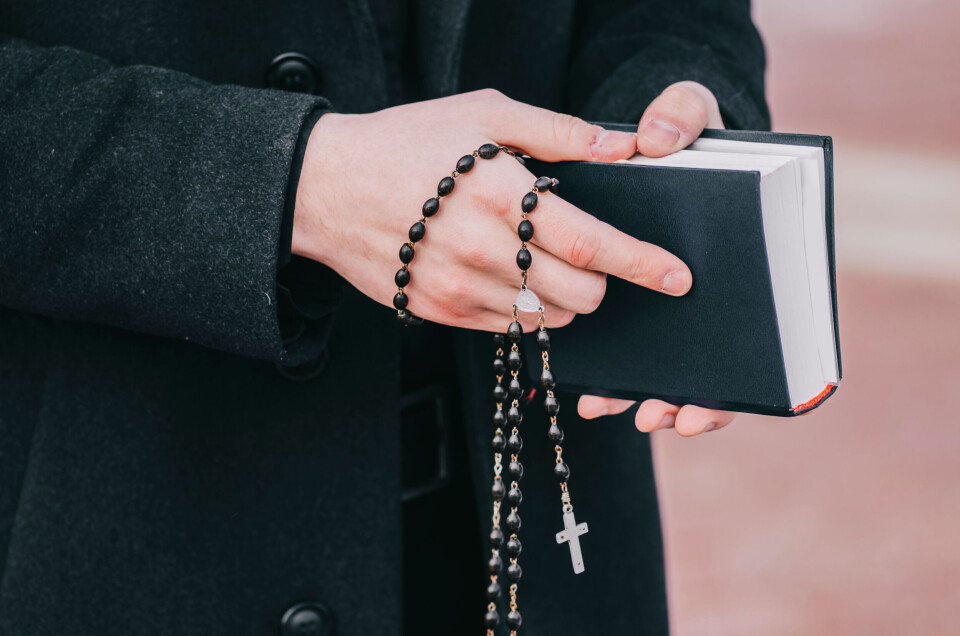-
BBC says no plans for content subscription service in France
Broadcaster’s ‘Sounds’ app has been unavailable since July 2025
-
France heat: 130 records set on February 25 - will it continue?
Seasonal records smashed as far north as Normandy and in the Alps
-
Aer Lingus relaunches summer Nice-Cork service
Two flights per week between May and September link south of Ireland and France
New ID card aims to stop predatory French priests. How will it work?
French victims of sexual abuse in the Catholic Church say the new system does not go far enough

Catholic priests in France are set to have a new identity card in a bid to make the church ‘safer’ against the backdrop of sexual assault and predatory behaviour.
The Conférence des évêques de France (CEF) said the system would be rolled out to the country’s 13,000 regular priests and the 3000 deacons “by the end of the year”.
The celebret card will show the professional priest’s ID and be issued by the ecclesiastical authority. It will attest the holder is a qualified priest who is authorised to hold mass and hear confession.
Currently, priests have a form of ID card, which is required for entry into events and establishments such as cathedrals or sanctuaries, or national days involving church services.
However, CEF spokesperson Alexandre Joly told BFMTV that the current system “is a falsifiable paper document…which is difficult to update”.
The new ID card will be printable if the holder wishes, but the updated details will be held digitally.
Colour coding
The new ID will have a QR code and an ID photo of the holder. It will show the details of their training, qualifications and ordination, as well as their name and place of birth. It will also show their current roles and whether they can carry out certain tasks such as confession, weddings, funerals, and baptisms.
It will also show whether they have the necessary legal checks required to lead a group of young people or be alone with a child (even in a visible space).
It will also be colour coded according to the priest’s status.
For example, a green band will show that the priest has no restrictions when it comes to holding mass or confession; while an orange band will show that there are some restrictions. A red band would show that the card’s holder can neither preach nor hold mass.
An orange band does not necessarily mean that the holder is under criminal investigation of any kind, said Monsignor Joly. Instead, it could be held by a young priest who is still in training, and cannot yet hear confession, he said.
The ID card will be renewed each year.
The CEF has said that France’s 18,000 priests and deacons will receive their QR code by the end of the year. As part of the new system, every year each diocese and congregation will update the digital records of its bishops, priests, and deacons.
The digital system will be updated in real-time. This means that if a priest is the subject of a civil or canonical sanction, this change will be updated instantly.
The public will be able to consult a database on the celebret.cef.fr website, and check a priest’s credentials by searching for their name and ID number. The card’s QR code will also be able to be accessed via a smartphone.
‘We can change’
The decision to issue the new ID cards was first made in November 2021, after a report revealed the extent of criminal paedophilia and predatory behaviour in the church since 1950, said Monsignor Joly.
He said: “It seemed necessary to show that we can change…and make the church safer when it comes to sexual assault.”
He added that the measure had been made in a bid to “respect the victims [who] cannot understand, rightly, how someone who has perpetrated severe crimes can continue to work.”
Victims: ‘Not enough’
However, some victims have said that the system does not go far enough and that the simple orange and red system is not transparent.
François Devaux, who has long worked to achieve more recognition of sexual abuse within the church, said that the new system would not help.
He said: “I don’t see how a member of the congregation would think to go and check the pedigree of the priest in question.”
























